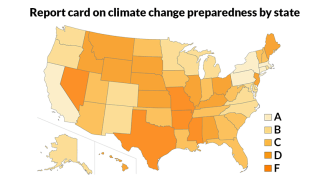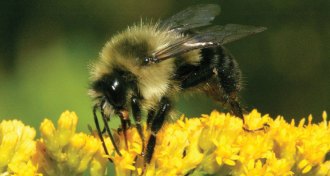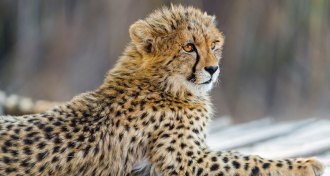Uncategorized
-
 Health & Medicine
Health & MedicineCow bites and spacecraft injuries enliven new medical diagnostic codes
The 10th edition of International Classification of Diseases went into effect in 2015, and it included some interesting additions.
By Bruce Bower -
 Climate
ClimateReport card shows which states are best prepared for climate change
A preparedness report card shows that some states aren’t ready for the extreme heat, droughts, wildfires and flooding that may come with climate change.
-
 Astronomy
AstronomyExoplanets need right stuff to be habitable
The elemental makeup of a star can reveal whether planets in its solar system could support sustained plate tectonics, a requirement for Earth-like life, researchers propose.
-
 Agriculture
AgricultureNumber of wild bees drops where they’re needed most
Wild bee abundance in the United States is lowest in agricultural regions, according to a new model.
-
 Life
LifeTweaking the pattern equations
A more than 60-year-old theory about how patterns in nature form gets an update.
-
 Science & Society
Science & SocietyScience News’ favorite books of 2015
The Science News staff offers its must-read picks of 2015.
-
 Earth
EarthSolid inner, inner core may be relic of Earth’s earliest days
Earth’s innermost inner core may have formed billions of years earlier than previously thought, shortly after the planet’s accretion.
-
 Physics
PhysicsPulsar pair ripples spacetime
A pair of pulsars gives scientists the best evidence so far for gravitational waves, which have yet to be detected directly.
By Andrew Grant -
 Climate
ClimateWhy some rainbows are all red
Red rainbows are caused by the position of the sun in the sky, appearing more often during sunrise and sunset, new research finds.
-
 Life
LifeUpending daily rhythm triggers fat cell growth
Constant production of stress hormone spurs fat growth.
-
 Genetics
GeneticsRoosters run afoul of genetic rules
Moms aren’t always the only ones that pass mitochondrial DNA to offspring, a study of chickens finds.
-
 Climate
ClimateFireworks brighten the sky but dampen the view
Fireworks and other pyrotechnics severely reduce visibility during celebrations such as New Year’s Eve and Guy Fawkes Day, researchers report.